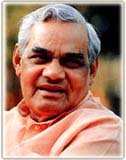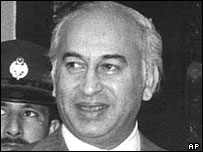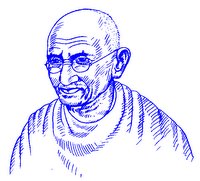
Whether People worshipping GOD are Barbarians ?!
There is no GOD and those who are worshipping GOD are barbarians. This theory was preached by Sri. E.V.Ramasamy Naicker [PERIYAR] founder of Dravidar Kazhagam. Once at early age of 25 he became a saint and went to Banaras and other Holy places in India. He was also the president of Tamil Nadu Congress during the year 1924. He joined Gandhiji’s non- cooperation movement. He also stopped the innocent poor people from going to toddy shops. But he is not having any faith on God's.
Periyar was the best friend of Sri. C.Rajagopalachariar [RAJAJI] former Governor General of India. He had supported and worked for several Brahmin’s, who stood in the General Elections during the year 1952. His statue preaching the No God theory being to be installed near the Srirangam Temple in Tamil Nadu was damaged by Hindu Makkal Katchi protesting that it should not be installed in front of the temple. Agitating to this a group of persons ransacked a mutt of the Sri Kamakoti Charities at Maravaneri and other temples at West Mambalam, Chennai and other places and also attacked some Brahmin community people's in Tamil Nadu
Like this during the year 1095, the Turks subjected the Christians Patriarch of Jerusalem to great humiliation. Even now the Pakistan reserved to itself the right of organizing propaganda and main plank of the propaganda being the cry of Jihad or war against India. Pakistan activists targeting Hindu places and temples and daily killing innocent peoples.
During Independence struggle, we have also lost thousands of our brothers due to racial hatred.Several Brahmins in Tamil Nadu Sacrificed their life during the struggle for Independence of India and they have also worked for the uplift of Tamil language,music, Drama, Dance, Politics and to improve Peoples welfare.Hindu Temples are not belonging to any individual person's and they should not be attacked. The hatred should not repeat now. We want the mankind and brotherhood. The Government of Tamil Nadu in India must also take strict action in not allowing any leader’s statue to be installed in front of any worship places and any Individual's should not be attacked for any reason's. No God theory can be preached by some other peaceful way and not by racial hatred or harassment.























